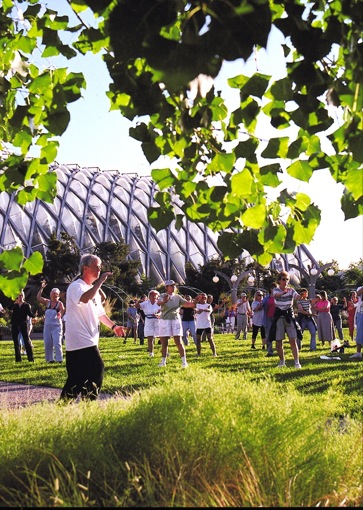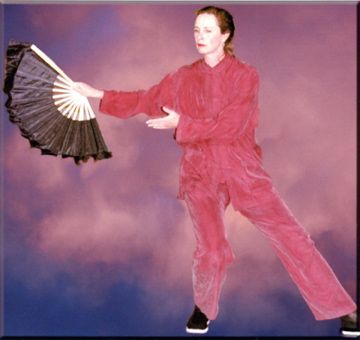What Is Tai Chi?



Tai Chi is Physical Exercises for the Cultivation of Consciousness” China Sports Editorial Board
The ancient Chinese art of Tai Chi is a moderate aerobic exercise that benefits both mind and body. The wear and tear often associated with conventional exercise methods is greatly reduced through emphasizing concentration and slow, deliberate movements. The American Medical Association describes Tai Chi as ” physical movement and mental concentration; its purpose is to moderately exercise all the muscles and achieve integration between mind and body.”
Meditation in Motion
The phenomenon of Tai Chi refers to a meditative state, where the mind acts as a center of command, control and coordination of the body. In psychology this is known as a “flow state”, athletes call it “the zone”, musicians call it a “groove” and the Chinese call it “Ming” the goal in Tai Chi.
Medication in motion
Tai chi is often described as “meditation in motion,” but it might well be called “medication in motion.” There is growing evidence that this mind-body practice … has value in treating or preventing many health problems.” — Harvard Medical Health Publication 2013 .
Joyous Artistic Performance
To those who perform it well, Tai chi becomes a joyous artistic performance where all separation between Mind and body disappear. By teaching the mind to take better control of the body, we regain a sense of control over our lives. We feel a sense of mastery over our fate and it is deeply enjoyable.
Cultivating the Mind
Meditation in Motion
The phenomenon of Tai Chi refers to a meditative state, where the mind acts as a center of command, control and coordination of the body. In psychology this is known as a “flow state”, athletes call it “the zone”, musicians call it a “groove” and the Chinese call it “Ming” the goal in Tai Chi.
Cultivation the Body
Medication in motion
Tai chi is often described as “meditation in motion,” but it might well be called “medication in motion.” There is growing evidence that this mind-body practice … has value in treating or preventing many health problems.” — Harvard Medical Health Publication 2013 .
Cultivating the Spirit
Joyous Artistic Performance
To those who perform it well, Tai chi becomes a joyous artistic performance where all separation between Mind and body disappear. By teaching the mind to take better control of the body, we regain a sense of control over our lives. We feel a sense of mastery over our fate and it is deeply enjoyable.
Moderate Aerobic Exercise
Steven Blair, Ph.D., (with The Cooper Institute for Aerobic Research in Dallas) refers to the “growing body of evidence regarding the efficacy of Tai Chi interventions in improving and maintaining function in older individuals. ….Tai Chi appears to influence favorably, balance, strength and …. aerobic power.”
Great Balance Exercise
A review of 36 research studies with a total of 3,799 participants showed Tai Chi reduces falls and improves balance, physical function and reduces blood pressure; fall risk; and depression and anxiety. Missing from the reviewed reports is a discussion of how spiritual exploration with meditative forms of PA, an important component of these movement activities, may contribute to successful aging. A Review of Clinical Trials of Tai Chi and Qigong in Older Adults Carol Rogers, APRN-BC, CNOR, Linda K. Larkey, PhD, CRTT, and Colleen Keller, PhD, RN-C, FNP,
A wide range of additional benefits
Tai Chi has also shown a wide range of other benefits, including increased strength and functional mobility, flexibility, psychological well-being, sleep enhancement, and increased aerobic functioning. Exploratory studies are underway on the effects of Tai Chi on immune function, bone loss, arthritis patients and others with immune disorders. One review study looked at 77 randomized controlled trials, including a total of 6,410 participants and found strong evidence that Tai Chi and qigong offer benefits for cardiorespiratory fitness, balance and fall prevention, physical function and bone health, mental health and quality of life.